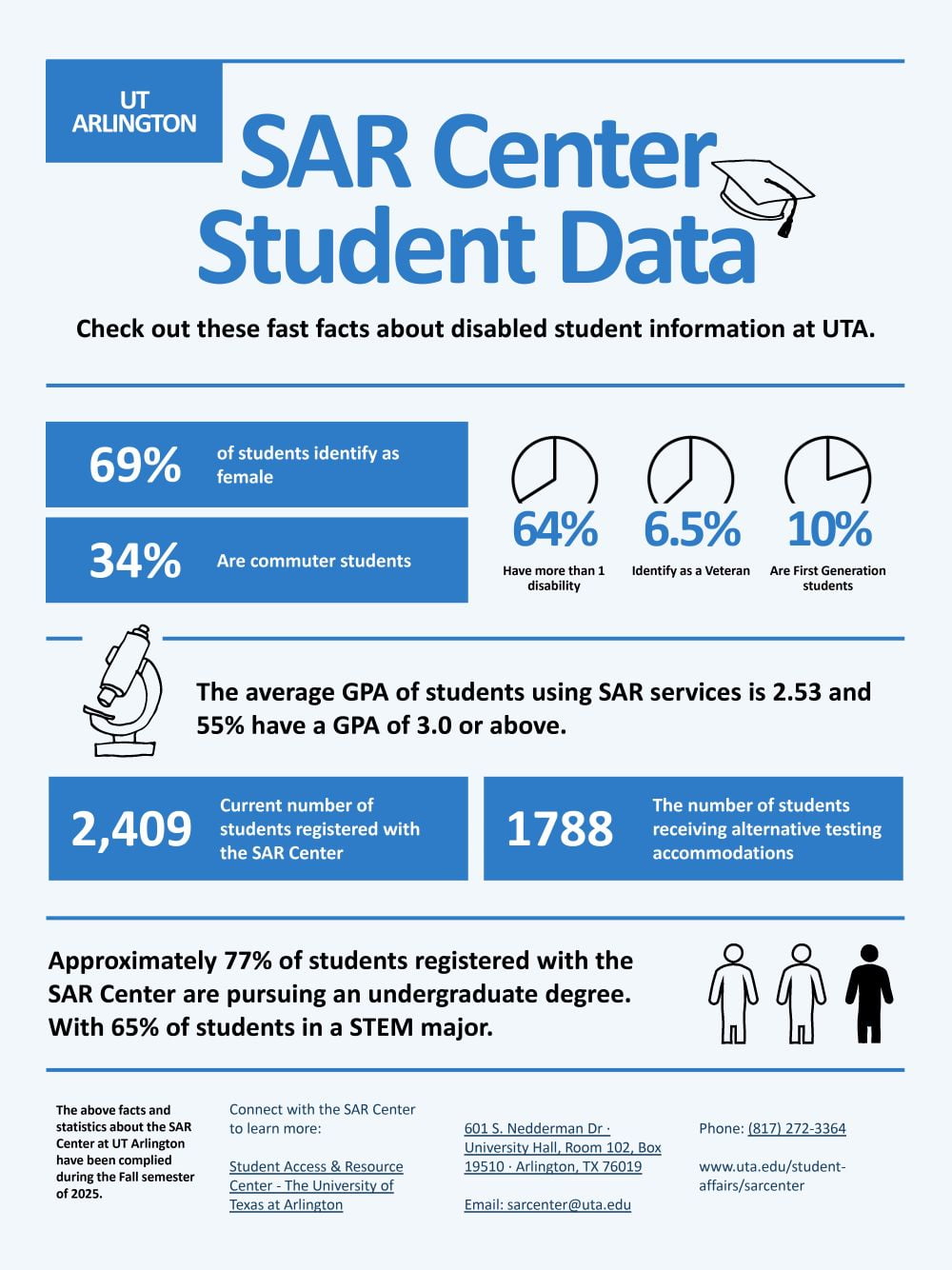The responsibilities toward students with disabilities in Higher Education institutions are very different from those of high schools. High schools are required under IDEA to identify the educational needs of students with a disability and provide a free and appropriate education. Higher Education institutions are required to provide appropriate academic accommodations to ensure that a student with a disability is not discriminated against. The student is responsible for disclosing his or her disability to the institutions disability office.
- Phone: 817-272-3364
- Email: sarcenter@uta.edu
- Address: 601 S. Nedderman Dr. · University Hall, Room 102, Box 19510 · Arlington, TX 76019
- Student Complaints
- HOURS:
- MONDAY - FRIDAY
- 8:00 AM - 5:00 PM
